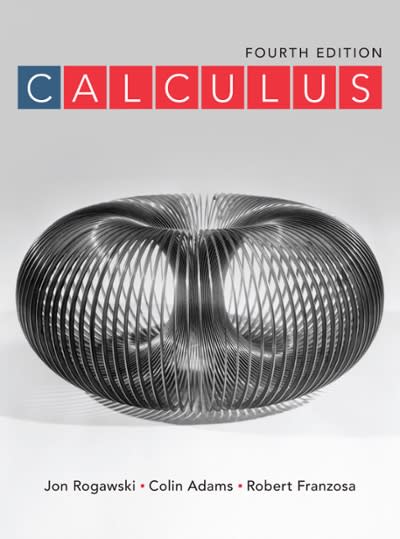If '(c) = 0 and (c) is neither a local min nor a local max, must x
Question:
If ƒ'(c) = 0 and ƒ(c) is neither a local min nor a local max, must x = c be a point of inflection? This is true for “reasonable” functions (including the functions studied in this text), but it is not true in general. Let

(a) Use the limit definition of the derivative to show that ƒ'(0) exists and ƒ'(0) = 0.
(b) Show that ƒ(0) is neither a local min nor a local max.
(c) Show that ƒ'(x) changes sign infinitely often near x = 0. Conclude that x = 0 is not a point of inflection.
Fantastic news! We've Found the answer you've been seeking!
Step by Step Answer:
Related Book For 

Question Posted:





